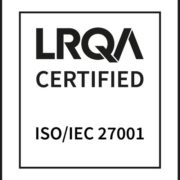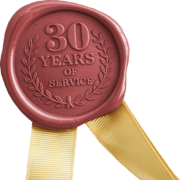Step 9: Continuously update and maintain.
10 Steps to successful CRM implementation
A Customer Relationship Management (CRM) system is a vital tool for managing customer interactions and data, but its value can quickly become limited if it’s not continuously improved and optimized. Having a continuous improvement plan in place is critical to ensuring that your CRM continues to support the developing needs of your business and deliver the best possible outcomes. In this blog post, we’ll explore why it’s critical to have a continuous improvement plan for your CRM and provide examples of how to implement it.
Stay Current with Technology Advancements
Technology is constantly evolving, and CRM systems are no exception. By having a continuous improvement plan, you can stay current with technology advancements and ensure that your CRM system is equipped with the latest features and capabilities to support your business needs. For example, you can implement a regular review process to evaluate new CRM technology and determine if it would improve the efficiency and effectiveness of your current system.
Enhance Customer Experience
Providing a positive customer experience is a key driver for success in any business. Ensure that your customers are receiving the best possible experience through streamlined communication and easy interaction with your business. As an example of this, you can gather customer feedback and use it to improve the user interface, automate repetitive tasks, and implement new communication channels.
Improve Data Accuracy
Data is a critical component of any CRM system, and the accuracy of that data is critical to making informed decisions. By continuously improving your CRM, you can ensure that your data is accurate, up-to-date, and properly synced between systems. You could implement a data quality control process that involves regular data cleaning, validation, and standardization.
Stay Compliant with Regulations
Regulations and data privacy laws are constantly changing, and it’s important to ensure that your CRM system complies with these regulations. Stay current with the latest regulations and ensure that your system provides the security controls to protect sensitive customer data. Regularly review your CRM security protocols and implement new ones to align with the latest regulations and best practices.
Increase Efficiency
Continuous improvement of your CRM can help increase efficiency by providing new automation tools and features that streamline processes and reduce manual work. This can free up time for your team to focus on more strategic tasks and improve overall productivity. Evaluate current processes and identify areas where automation can be implemented to improve efficiency.
Better Return on Investment (ROI)
Investing in a CRM system is a significant investment for any business. By continuously improving your CRM, you can ensure that you are getting the maximum ROI from your system. By staying current with technology advancements, improving data accuracy, and increasing efficiency, your CRM will continue to deliver value to your business.
Stay Ahead of the Competition
In today’s competitive business environment, it’s essential to stay ahead of the competition by delivering a better customer experience, improving data accuracy, and increasing efficiency. For example, you can regularly review the best practices and innovation in your industry and identify areas where you can differentiate and innovate your CRM approach.
A continuous improvement plan is critical to ensuring that your CRM continues to support the growing needs of your business and deliver the best possible outcomes. A CRM system is only as valuable as the data it contains and the processes it supports. By having a continuous improvement plan in place, you can ensure that your CRM system is always providing the best possible support to your business, customers, and teams.



